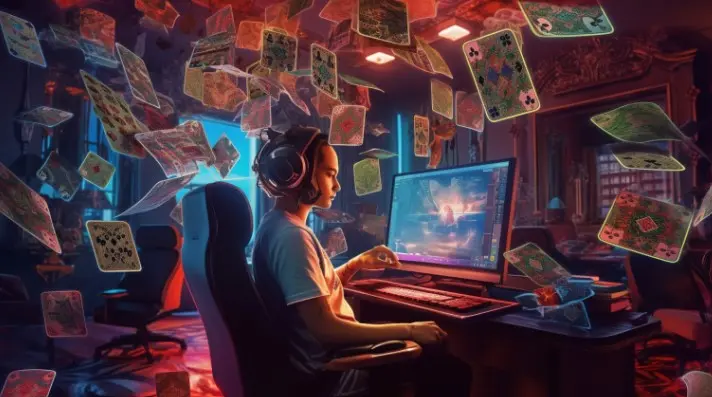A Journey from Early Digital Games to Multiplayer Realms
The world of gaming has undergone a remarkable transformation over the decades. What began as isolated experiments on massive machines has become a global, monetized phenomenon driven by online communities, microtransactions, and evolving gameplay ecosystems.
The Humble Beginnings: One Machine, One or Two Players
Long before online leaderboards and multiplayer chat lobbies, digital games were rudimentary. In the early 1950s, titles like NIMROD and OXO showcased logic-based entertainment where players engaged directly on large computers. These machines served no purpose other than running the game at the time.
By the 1960s, computing started to shift. Time-sharing technology allowed multiple users to access a single system. This change gave rise to terminals enabling users to play or interact with programs remotely from various rooms, foreshadowing the distributed systems we see today.
Breaking the Barrier: From Physical Proximity to Networked Play
A Key Milestone: The Birth of a Virtual Arena
One significant leap happened in 1974 with the release of Mazewar. Unlike earlier text-based titles or local games, Mazewar featured:
- A first-person visual representation of a maze.
- Player-versus-player gameplay using a graphical interface.
- Real-time interaction between users across connected machines making it the first true networked multiplayer game.
This was the dawn of something much bigger: a persistent virtual world where physical location no longer mattered.
The Modern Era: From Free-to-Play to Microtransaction Empires
Fast forward to the 2010s, and the online gaming model had drastically changed not just technologically, but economically. Today, popular platforms like Togel178 and Pedetogel follow a new paradigm known as “Games as a Service” (GaaS).
Top 5 Defining Features of Modern Online Gaming Models:
- Free Access with Premium Layers
Most online games today don’t require an upfront purchase. They hook players with free access and later monetize through optional purchases. - Loot Boxes and Random Rewards
Tapping into players’ psychological curiosity, randomized rewards (loot boxes) became a major revenue source for platforms. - Battle Passes and Seasonal Content
Instead of static games, services now offer time-limited events and unlockable rewards through paid progression paths. - Always-Online Dependency
Unlike traditional physical games, these online games depend on hosted servers. When those servers go offline, the game becomes unplayable making their lifespan tied to their host’s infrastructure. - Constant Updates and Community Engagement
Game developers no longer just release and forget. Continuous patches, live events, and user feedback loops have become the norm to retain active users.
The Catch: No Offline Ownership
While platforms like Togel178 and Pedetogel offer immersive online experiences and community engagement, there’s an important caveat permanence. Since these games rely on servers to operate, users don’t actually “own” the experience. Once support ends or servers shut down, access disappears.


